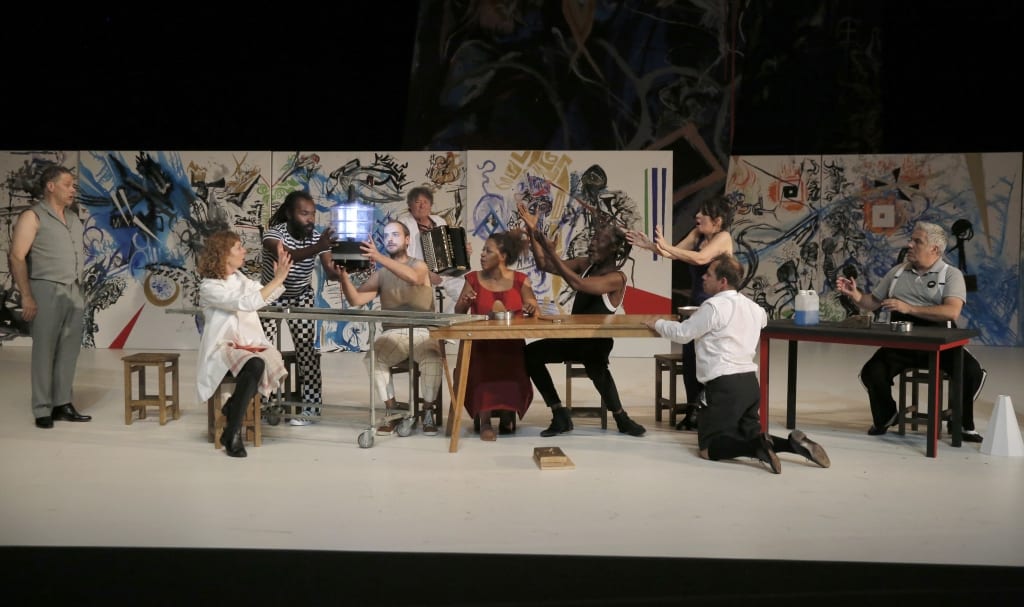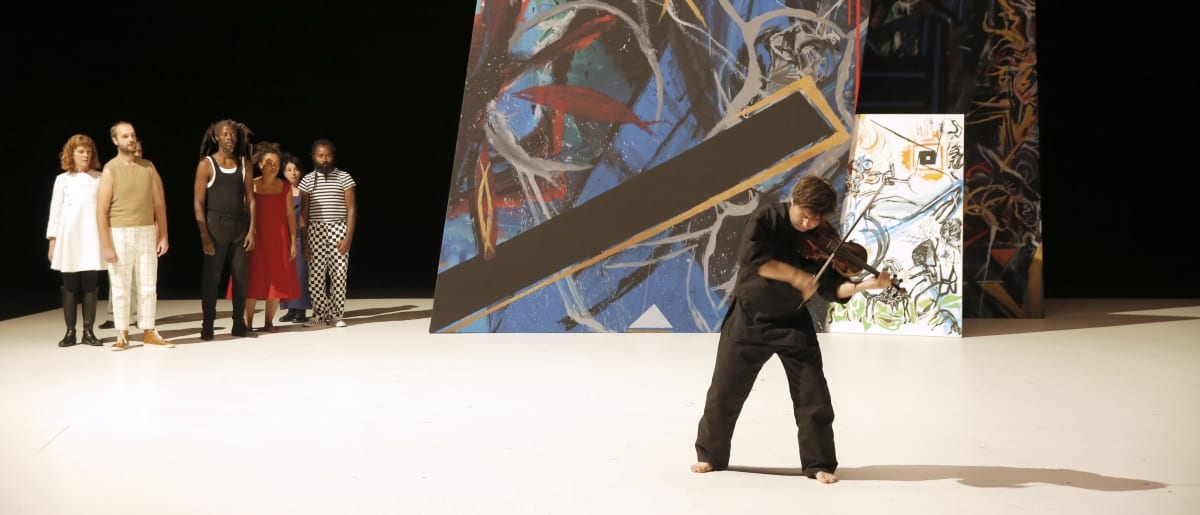Diving into L’animal Imaginaire is diving into Valère Novarina’s world of poetry and absurdity, as he is not only both the imaginative author and brilliant director of the play but also the talented painter of all the paintings that progressively take over the stage. Starting off by a serious monologue, a woman solemnly talking about the power of writing, sat at a simple desk, is quickly taken away as Novarina splashes the audience in colour with the depiction of an imaginary land.
A dozen comedians appear: the inhabitants of this imaginary land. They have their own religion, rituals, food, traditions, languages, history, currency, and even their own temporality. They turn to the audience as they demonstrate every absurd aspect of their culture. But like Albert Camus wrote in his journal, “What [they] have to say is more important than who [they] are”.
The text is so incredibly musical playing with words, cultural reference and juggling with sounds in each sentence, the sudden appearance of musical instruments (guitar, violin, accordion) comes as no surprise. Topped up with continuous incredibly absurd declarations, the play quickly takes a hilarious turn. “You say that because your mouth talked,” seriously declares a woman.

If the play begins with the idea of the written word, it moves on to the spoken word before ending on oral writing and silence in an attempt to explore all the different capacities granted to us through language. Similarly, a violinist appears trying to get out of his instrument each and every sound that it can make.
They paint with words, they sing with words, they breathe with words, they invent with words but their bodies carry a message in which death is omnipresent. The silence is a rare entity in this three-hour-long play calling non-stop for the audience’s full attention. If you have the courage to stay till the end (a handful of people when I was there didn’t), the play will leave you exhausted but yet awaken like never before.
Symbolically, the last word said on stage is the verb “to exist”. But it was only well after the play had ended that I realised how sad the play implicitly was. With L’animal Imaginaire, Novarina has imagined and brought to life a community well aware of the climate emergencies, who advocate the plurality of genders, and speak a gender neutral language. “We don’t eat plastic” and “feel the earth crumble under our feet” they say. “We have ranked their gods in decreasing order of harmfulness,” they add. Behind each aspect of their world is a piece of concealed criticism of our way of life, us, the “people of the real” as they say pointing to the audience.

